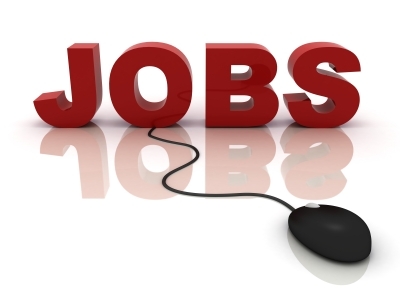Older job seekers face unique challenges and issues but also have  tremendous advantages and opportunities.
tremendous advantages and opportunities.
Many older job seekers have left the work force in upper mid-senior level positions and with it, the higher salaries and benefits that come with those positions.
The fact is that there are fewer mid-senior level management positions available and as such, older job seekers are finding it more and more difficult to land a job.
According to June statistics from the U.S. Bureau of Labor Statistics, more than half a million people age 50 and older are unemployed and looking for work and the U.S. Department of Labor said that workers age 55 and up have an average duration of joblessness of 35.5 weeks, compared with 23.3 weeks for job seekers between 16 and 24 and 30.3 weeks for those between 25 and 54.
Looking for a job, under any circumstance at any age is still a hard thing and unfortunately, most people have no formal training in searching for a job which can be frustrating as you get older. In addition is the reality of age discrimination: employers or HR recruiters who are basing their hiring decisions based on age. In their minds, their first thought is that an older job seeker is over-qualified and will be demanding a higher salary.
While it is difficult for older job seekers to eliminate the stereotypes about their age, it is necessary to replace those thoughts with a rock-solid confidence that emphasizes skills and capabilities. Savvy employers recognize that older job seekers offer the benefit of defined expertise as well as maturity, judgment and wisdom about industries and trends that comes from their past experience.
In addition to just understanding how to find the jobs that are available, I always suggest to older job-seekers to do a few critical things:
1.) Re-learn HOW to look for a job. Many older job seekers have not  had to look for a job in a very long time. Gone are the days in which you open the newspaper, scan through hundreds of jobs and blindly send out your one tailored resume to employers. Today, looking for a job is very similar to crafting a strategic marketing campaign with laser-focused targets. Each resume must be customized and needs to define the relevance of your capabilities and experience to the job you are applying. Networking and cold-calling are critical tactics to open doors. Selling yourself as a product might seem awkward, but in much the same way, you need to define the value you will bring to an organization and specifically explain how you can help the organization solve a problem.
had to look for a job in a very long time. Gone are the days in which you open the newspaper, scan through hundreds of jobs and blindly send out your one tailored resume to employers. Today, looking for a job is very similar to crafting a strategic marketing campaign with laser-focused targets. Each resume must be customized and needs to define the relevance of your capabilities and experience to the job you are applying. Networking and cold-calling are critical tactics to open doors. Selling yourself as a product might seem awkward, but in much the same way, you need to define the value you will bring to an organization and specifically explain how you can help the organization solve a problem.
2.) Create a jobs skill audit. A jobs skills audit will help you focus on what you want to do and identifies the skills that make you a viable candidate. Sit down with a pad of paper and list every skill that you have developed in a lifetime of work. It could be anything from supervising employees to developing massive budgets to the skills associated specifically with your expertise. Just brainstorm all the skills you have and then go back and start to prioritize those skills into two columns – primary and secondary skills. You will be amazed at how much more you recognize about yourself than when you first began this exercise. In addition, you will begin to see opportunities in terms of how these skills may be transferable to different careers and jobs.
3.) Create a ‘personal brand statement’. Every interview will start with the question: “Tell me about yourself.” Consider your ‘personal brand statement’ as the summary statement that describes who you are, how you differentiate yourself from others in terms of background, skills and expertise and why you are someone who should be hired. Your resume should back up your ‘brand’ in terms of prior experience, training, and expertise.
4.) Learn how to be a good job interviewer. Let’s face it – once you are being interviewed, it really is an audition. When you get to this point, you’ve already been ‘scrubbed’ and you (as well as others being  interviewed) have been determined to have matched the criteria and are considered qualified for the job. You are now being judged on other things: can you think on your feet? Do you have a good personality that will fit the company culture? Are you confident? Can you sell yourself? Can you make tough decisions? Can you juggle several projects at once? Are you friendly? Creative? Analytical?
interviewed) have been determined to have matched the criteria and are considered qualified for the job. You are now being judged on other things: can you think on your feet? Do you have a good personality that will fit the company culture? Are you confident? Can you sell yourself? Can you make tough decisions? Can you juggle several projects at once? Are you friendly? Creative? Analytical?
Perhaps most importantly, can you talk passionately and enthusiastically about yourself, your qualifications, your experiences and about the prospect of working for a new employer?
There are a lot of common questions that get asked at an interview and you need to be prepared.
– Open ended questions (why do you want to work for us? Tell us why you’d be a good fit here?)
– Hypothetical questions (‘What if?’ questions. How would you handle the following situation?)
– Direct questions (What specific skills do you have for this….?)
5.) Research the company you are interviewing for. At the interview, you also need to have researched the company you are interviewing with and the industry in which they operate. With the Internet, there is tons of access to information about companies,  organizations and the people who run them. Read their SEC filings. Scan their annual reports. Research media clips. Use ‘Linked In’ to research key individuals. Understand the company’s goals and challenges. Be able to ‘talk’ their language. What key industry metrics does this company use to measure success?
organizations and the people who run them. Read their SEC filings. Scan their annual reports. Research media clips. Use ‘Linked In’ to research key individuals. Understand the company’s goals and challenges. Be able to ‘talk’ their language. What key industry metrics does this company use to measure success?
6.) Consider becoming an independent consultant. You have a ton of knowledge that comes from years working in your career field and in your industry. Revisit your former employer or reach out to former clients and other industry contacts and see if there are opportunities for you to provide them with short-term or temporary project-based consulting. Often, companies who are on full-time employee hiring freezes allow departments to hire contract consultants to work as consultants. Be prepared to offer ideas for how your expertise can help the company. Also be prepared to discuss how much you would charge for your expertise. Some consultants charge by the hour, while others charge a one-time project fee. In either case, it’s important to calculate what you are worth. Consider your hourly fee, all of your expenses and what you would likely make if you were a full-time employee with benefits. I’d also suggest developing a simple agreement that specifies your work. Click here for a step-by-step way to determine your consulting rate.
7.) Take advantage of free resources. The American Association for Retire Persons (AARP) offers free job seeking expertise for job seekers over the age of 50 including articles, surveys on the best employers for older employees, webinars and career fairs. Click here for the AARP work  website. In addition, your local city and state offer resume building workshops and one-on-one job skills consulting to help you develop more confidence in your interview skills. Connect with your local industry association to find out about networking groups, seminars and other opportunities to meet with employers who are hiring.
website. In addition, your local city and state offer resume building workshops and one-on-one job skills consulting to help you develop more confidence in your interview skills. Connect with your local industry association to find out about networking groups, seminars and other opportunities to meet with employers who are hiring.








